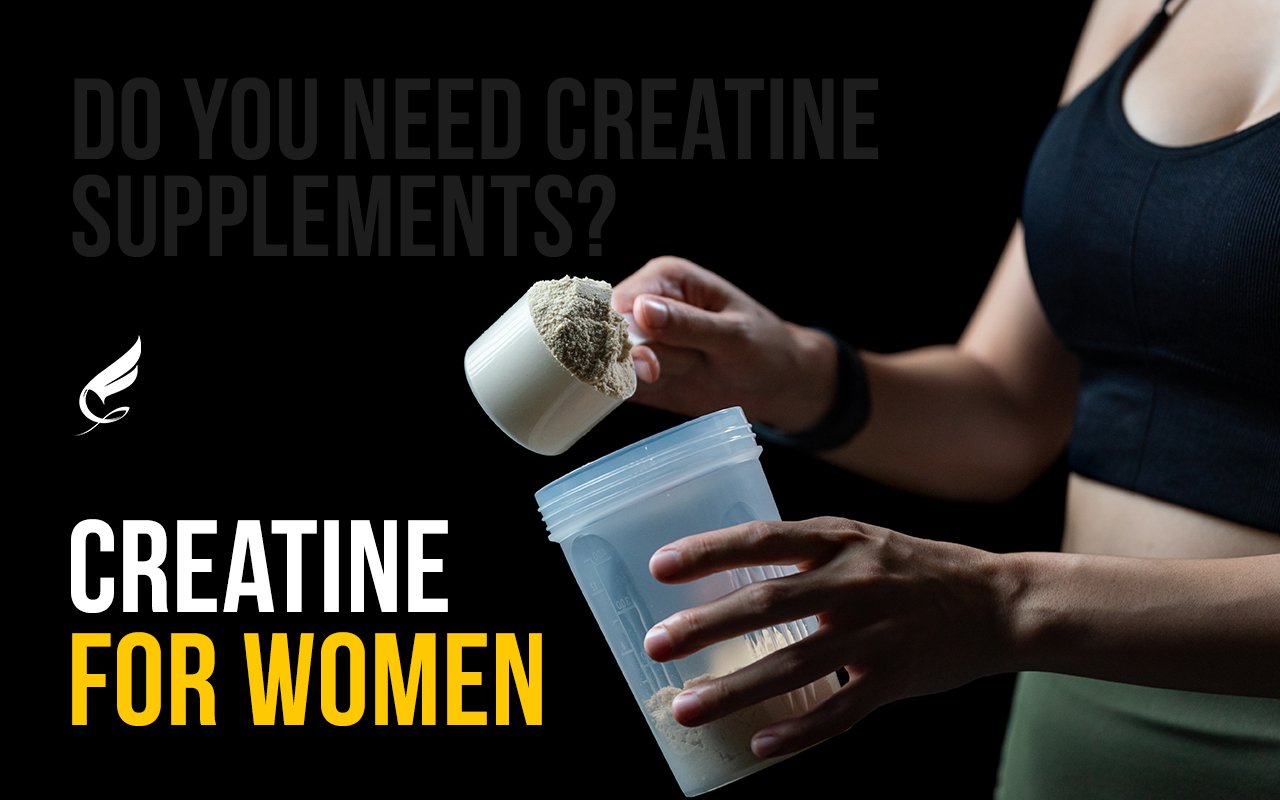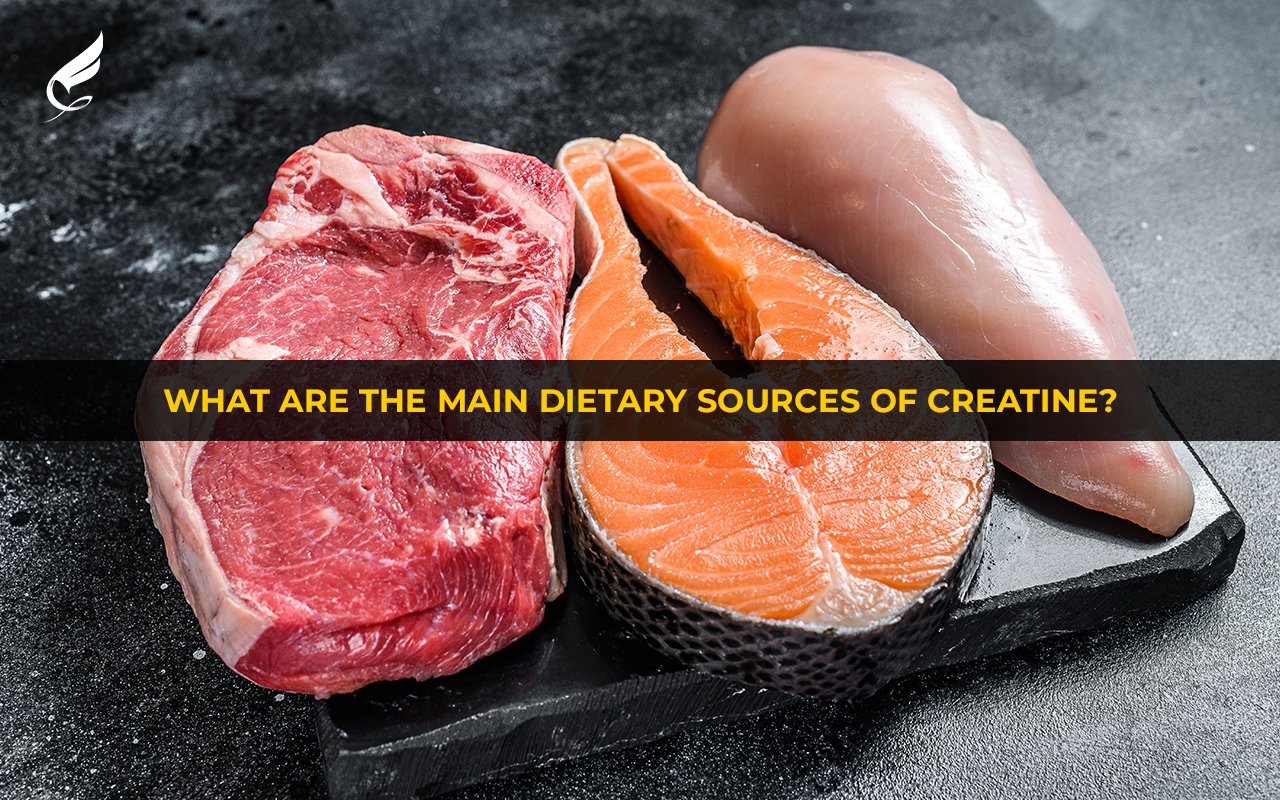Creatine for Women: Benefits, Side Effects, and How to Use It
Introduction
Creatine is a popular supplement among athletes and fitness enthusiasts, but many women wonder if it's right for them. In this blog post, we'll explore the benefits of creatine for women, address potential side effects, debunk common myths, and provide guidance on how to use it effectively.
What is Creatine?
Creatine is a naturally occurring compound found in small amounts in certain foods like meat and fish. It plays a crucial role in energy production, particularly during high-intensity activities like weightlifting and sprinting.
How Much Creatine Does the Human Body Produce?
The human body naturally produces about 1-2 grams of creatine daily, primarily in the liver and kidneys. However, more than this amount may be required for those engaged in intense physical activity.
What are the Main Dietary Sources of Creatine?
The primary dietary sources of creatine include:
Red meat (beef, pork, lamb)
Fish (salmon, tuna, herring)
Poultry (chicken, turkey)
Quantities of creatine in different food sources
400 grams of cod, salmon, pork, or beef contain between 1.4 and 2.2 grams of creatine. Herring is a type of fish that includes the most creatine, 3-4 grams per 400 grams.
Should Women Supplement Creatine?
Yes, women can absolutely benefit from creatine supplementation. It can help:
Increase strength and power
Improve exercise performance
Enhance muscle growth
Support brain health
What are the Benefits of Taking Creatine?
Creatine offers numerous benefits for women, including:
Enhanced Strength and Power: Creatine helps increase the body's production of adenosine triphosphate (ATP), the primary energy source for muscle contractions, leading to improved strength and power output during workouts.
Improved Exercise Performance: Creatine can enhance performance in high-intensity activities like weightlifting, sprinting, and HIIT, allowing you to train harder and achieve better results.
Increased Muscle Growth: Creatine can promote muscle growth by increasing protein synthesis and supporting muscle cell volumization.
Brain Health Benefits: Creatine may also support brain health by improving cognitive function and protecting against age-related decline.
Are There Any Potential Side Effects of Taking Creatine?
Creatine is generally safe for most people when used in recommended dosages. However, some individuals may experience mild side effects, such as:
Water Retention: Creatine can cause water retention, leading to temporary weight gain.
Digestive Issues: Some people may experience digestive discomfort, such as bloating or diarrhea, when first starting creatine supplementation.
Common Myths About Creatine Supplementation
Creatine Makes Me Gain Weight: While creatine can cause water retention, it does not directly lead to fat gain. Any weight gain experienced is usually temporary and due to increased water content in the muscles.
Creatine is Bad for My Kidneys: Numerous studies have shown that creatine supplementation does not harm kidney function in healthy individuals.
What are the Best Creatine Supplement Sources?
The most common and well-researched form of creatine is creatine monohydrate. It is widely available, affordable, and effective. Other forms of creatine, such as creatine hydrochloride (HCI) and creatine ethyl ester, may offer slightly different absorption rates or benefits, but more research is needed to confirm their efficacy.
How Should Women Take Creatine Supplementation?
Loading Phase: To quickly saturate your muscles with creatine, you can start with a loading phase of 20 grams per day for 5-7 days.
Maintenance Phase: After the loading phase, a maintenance dose of 3-5 grams per day is sufficient to maintain creatine levels in your muscles.
Timing: You can take creatine at any time of day, but taking it with a meal or post-workout may enhance absorption.
Conclusion
Creatine is a safe and effective supplement that can benefit women's fitness journeys. It can enhance strength, improve exercise performance, support muscle growth, and even offer cognitive benefits. By understanding the science behind creatine and following the recommended dosage guidelines, women can safely incorporate this powerful supplement into their routine and achieve their fitness goals.
Do you have a sensitive stomach? Read our blog: [Creatine for Sensitive Stomachs]
To find out more about our services, check out:
Learn more with Dubai’s leading fitness and wellness blog:
#BeFortius
Sources
Buford TW, et al. International Society of Sports Nutrition position stand: creatine supplementation and exercise. Journal of the International Society of Sports Nutrition. 2007;4:6. (https://jissn.biomedcentral.com/articles/10.1186/1550-2783-4-6)
Kreider RB, et al. International Society of Sports Nutrition position stand: safety and efficacy of creatine supplementation in exercise, sport, and medicine. Journal of the International Society of Sports Nutrition. 2017;14:18. (https://jissn.biomedcentral.com/articles/10.1186/s12970-017-0173-z)
Cooper R, et al. Creatine supplementation with specific view to exercise/sports performance: an update. Journal of the International Society of Sports Nutrition. 2012;9:33. (https://jissn.biomedcentral.com/articles/10.1186/1550-2783-9-33)
Rae C, et al. Oral creatine monohydrate supplementation improves brain performance: a double–blind, placebo–controlled, cross–over trial. Proceedings of the Royal Society of London. Series B: Biological Sciences. 2003;270(1529):2147-2150. (https://www.ncbi.nlm.nih.gov/pmc/articles/PMC1691485/)







